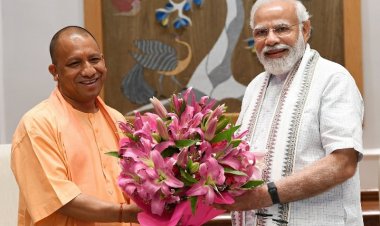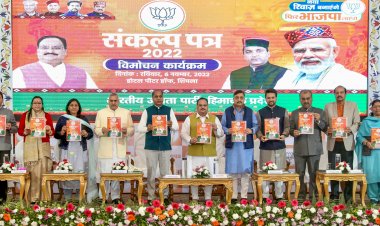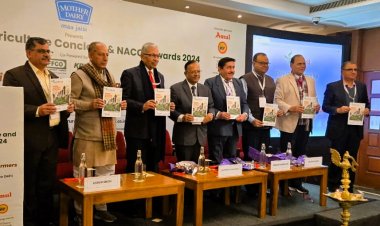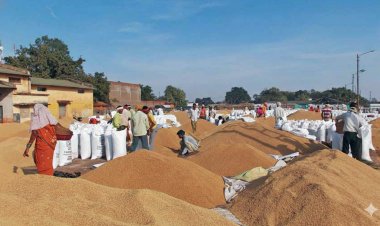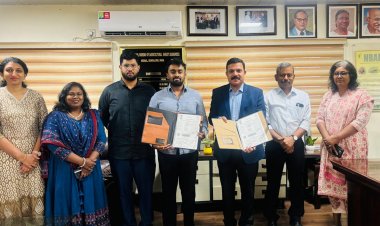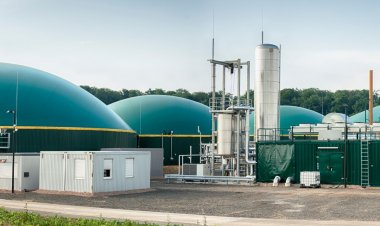Counting on 690 Assembly seats in five states in 1,200 halls
Votes for the 403-seat UP Assembly, the largest in the country, are being counted in 750 halls while Punjab has more than 200 counting halls. More than 600 observers have been appointed to monitor the entire process.
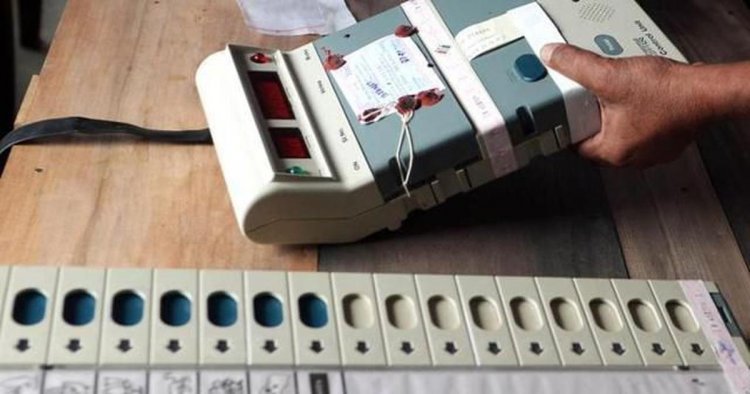
It is the day of results today after the polls for five State Assembly elections. The counting of votes in Uttar Pradesh (UP), Punjab, Uttarakhand, Goa and Manipur has been going on since 8 am today. There are 690 Assembly seats in these states.
The Election Commission of India (ECI) has made elaborate arrangements for the counting of votes. More than 50,000 officials have been appointed for the counting in 1,200 halls. Video and static cameras have been installed at all counting centres. The ECI had announced the polling dates for the five states on January 8, following which the Code of Conduct had come into effect.
Votes for the 403-seat UP, the state with the largest number of Assembly seats in the country, are being counted in 750 halls while Punjab has more than 200 counting halls. More than 600 observers have been appointed to monitor the entire process. The postal ballots will be counted first and then the EVM votes.
The Opposition caused a huge uproar on Tuesday when EVMs were found at several places in UP. Some of the EVMs were found in trucks while others in garbage vehicles. Although the ECI has clarified that these EVMs had been used for training, the Opposition, especially the Samajwadi Party (SP), has raised serious questions.
The exit polls conducted on March 7 after the last phase of polls in UP indicated that the Bharatiya Janata Party (BJP) was likely to form government in the state once again. These polls have predicted an Aam Aadmi Party (AAP) government in Punjab and a BJP government in Manipur. But Goa and Uttarakhand may have hung Assemblies.
If the BJP wins in UP, it will be for the first time in about three decades that the incumbent party will regain power. In the 2017 Assembly elections, BJP had won 312 seats and its allies 13. SP had bagged 47 seats, Bahujan Samaj Party (BSP) 19, Apna Dal (S) 9 and Congress 7. However, there have been changes in the alliances of both the BJP and the SP for the current elections.
Section 144 has been imposed on all counting centres in Punjab. About 7,500 officials have been appointed for the counting of votes. Forty-five companies of the Central Reserve Police Force (CRPF) have been deployed from the security point of view. The government has ordered liquor shops to remain closed until the counting is over. The winning candidate himself or his representative may go with two persons to collect his winning certificate.
In Uttarakhand, too, the counting of votes started for its 70 Assembly seats at 8 am. Most of the exit polls have predicted a hung Assembly. In about 42 of the 70 constituencies here, there is a direct contest between the BJP and the Congress. The contest is triangular in the rest of the constituencies. Kailash Vijayvargiya, a senior BJP leader of Madhya Pradesh and the national general secretary of the party, had reached Dehradun before the counting started. He is believed to be adept at political manipulations. He had played an active role when there was a coup against the Harish Rawat government of the Congress in 2016. Congress has sent the Chhattisgarh Chief Minister Bhupesh Baghel to Dehradun.
BJP is trying to form the government for the third time in Goa, which has 40 Assembly seats. However, most of the exit polls have not indicated a clear majority for any party. A total of 302 candidates are in the fray here. The votes will be counted at two places — Damodar College in Margao and Government Polytechnic in Panaji. The main contest is between the BJP and the Congress. Besides, Goa Forward Party, Maharashtra Gomantak Party, AAP, Trinamool Congress and some Independent candidates are also in the fray. In the 2017 elections here, Congress had bagged 17 seats but it was the BJP with only 13 seats that had formed the government.
Votes are being counted in 41 halls in Manipur for its 60-seat Assembly. Senior leaders of various parties reached here even before the counting started. Congress has several of its senior leaders, including party general secretary Mukul Vasnik and Chhattisgarh health minister TS Singhdeo, present here while the BJP has posted its national spokesperson Sambit Patra. In Manipur, too, the Congress had been unable to form the government in 2017 despite winning 28 seats. The Governor had invited the BJP, which had won mere 21 seats, to form the government. The National People’s Party (NPP) and the Janata Dal (United) have claimed to play a pivotal role in forming the government. Both of them are allies of the BJP, and the NPP even shares power in the state with the BJP. But both the parties have contested the elections independently.



 Join the RuralVoice whatsapp group
Join the RuralVoice whatsapp group




















